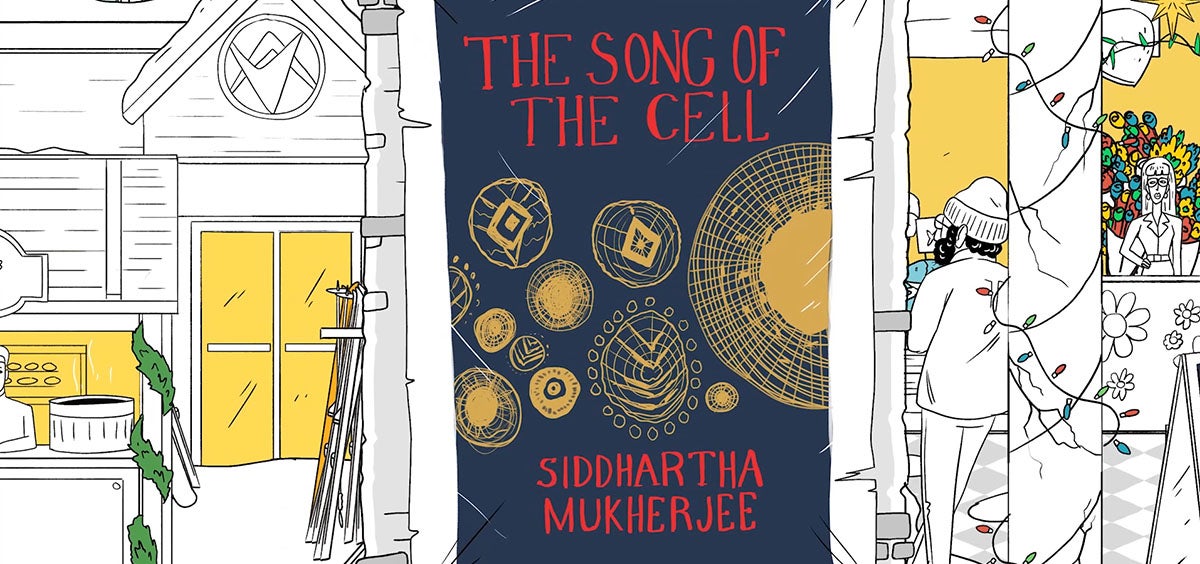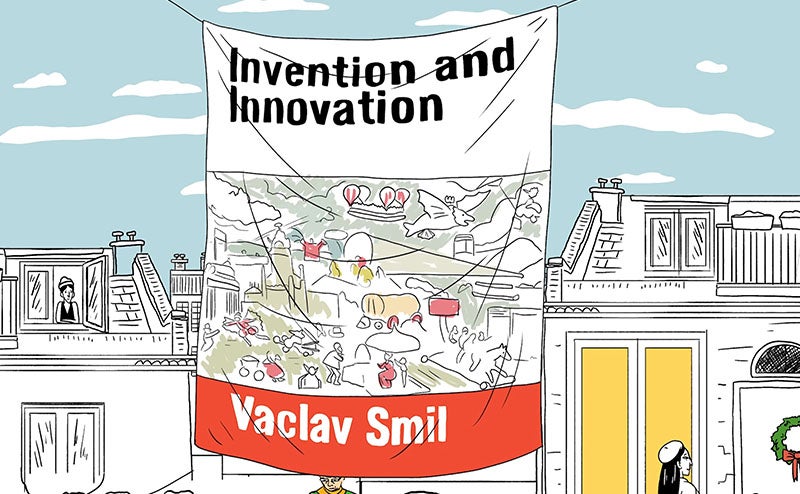I didn’t like biology when I was a kid. I remember dissecting a flatworm in high school and thinking, “What relevance does this have for my life?” The answer, of course, is a great deal—but at the time, I didn’t see the connection between a worm’s biology and a person’s. It wasn’t until I started learning about global health that I began to fully understand and appreciate the subject.
If I had been able to read The Song of the Cell by Siddhartha Mukherjee in school, I might have fallen in love with biology a lot earlier. He does a terrific job of explaining in clear, accessible language not only how cells work but why they are the foundation of all life.
Although he’s a Pulitzer Prize-winning author, Mukherjee is primarily an oncologist whose passion for the subject of cellular biology comes through on every page. Early in the book, he writes, “I love looking at cells in the way that a gardener loves looking at plants—not just at the whole, but also the parts within the parts.” The result is just as good as his two previous books: The Emperor of All Maladies, which is about cancer, and The Gene, which you can probably guess the subject of.
The Song of the Cell starts by helping you understand the evolution of life. When life first emerged on our planet, it was in the form of single-celled organisms. (The Vital Question by Nick Lane is another terrific book that tackles this topic.) Billions of years later, the human body is home to hundreds of highly specialized cells, which all work in harmony with one another to help you grow and continue to function throughout adulthood. Mukherjee does a great job explaining how every dysfunction—every illness or consequence of aging—eventually comes down to something going wrong with one of these cells.
Although it’s been nearly two centuries since two German scientists first proposed cell theory—the idea that all organisms are made up of cells—our understanding of how to manipulate the building blocks of life to treat disease is still in its relative infancy. Mukherjee spends a lot of time exploring the history and current state of cell therapy, which involves taking your cells out, growing new ones, and then putting them back in.
The most successful and best-known type of cell therapy today involves stem cells. Unlike most cells in the human body, stem cells are a blank canvas. Think of them as potential, with the ability to become almost any cell in the body. When an embryo is first formed in the womb, it’s almost entirely made up of these blank canvases. By the time you’re an adult, you have a lot fewer of them—but the stem cells you do have play a key role in replacing damaged cells. As you get older, they age with you. Their DNA gets damaged over time and they become less effective, which means that your tissue takes longer to replenish. (If you have reached the age where it takes a lot longer to recover from an injury than it used to, your aging stem cells deserve some of the blame.)
Scientists have long been excited about the therapeutic potential of stem cells. The hope is that, one day, we’ll be able to use stem cells to revert your cells to a younger, healthier state. I’m still optimistic that will be the case eventually, but I think the initial excitement was a bit overoptimistic. For example, researchers had grand visions of repairing a broken spine with neural stem cells that would regrow the spinal cord. That hasn’t panned out yet, and to date, there is only one form of successful stem cell therapy: hematopoietic stem cell transplantation, which involves blood cells.
The history of the stem cell transplant is equal parts amazing, inspiring, and heartbreaking. Mukherjee devotes an entire chapter to the subject. In 1963, a team at the Fred Hutchinson Cancer Research Center—affectionately known here in Seattle as Fred Hutch—knew that the most effective way to treat leukemia was to destroy the cancer cells with chemotherapy. But there was a problem: The process destroyed the immune system.
If left untreated, leukemia is usually fatal. So, they came up with a bold solution. The doctors would dose a patient with chemotherapy and then give them stem cells from a donor to rebuild the entire immune system from scratch. When the procedure was first done, it was very risky, and the initial patients died. Mukherjee interviewed some of the nurses who worked in the leukemia wing at Fred Hutch. It’s hard to read their stories of watching their patients—many of whom were children—struggle to recover after the procedure.
Slowly but surely, over time, both the operation itself and the ongoing survival rate improved. Today, hematopoietic stem cell transplantation is a common treatment for leukemia and other cancers like multiple myeloma. And research is ongoing into whether it could be used to treat deadly diseases like HIV and sickle cell disease.
The journey to effective cell therapies has been long and bumpy, but I’m optimistic that our new understanding of cells will soon lead to massive breakthroughs. As Mukherjee explains in the book, we are just starting to grasp how cells interact with one another. “We can name cells, and even systems of cells, but we have yet to learn the songs of cell biology,” he writes. We don’t yet know how cells work together to create the cohesive melody that powers the human body. Once we learn those songs—as he so elegantly puts it—I believe we will unlock transformative new treatments that will change how we think about medicine.
If I could go back in time and tell my teenage self how biology is relevant to his life, I would say this: All of us will get sick at some point. All of us will have loved ones who get sick. To understand what’s happening in those moments—and to feel optimistic that things will get better—you need a foundational knowledge about the building blocks of life. Mukherjee understands that “to locate the heart of normal physiology, or of illness, one must look, first, at cells.” The world of medicine moves very quickly, and The Song of the Cell will help you appreciate just how far we’ve come to achieve each breakthrough.




